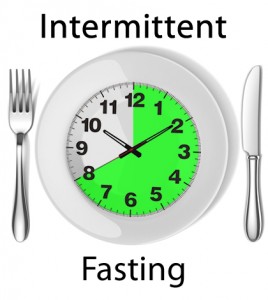 About a year ago, after a car drive discussion about our retirement plans and mutual desire to age in a way that allows us to continue to be active and adventurous as we age, my husband and I decided to try intermittent fasting as a means to improve our health and longevity. We’d read several studies outlining the health benefits of intermittent fasting, and wanted to see for ourselves if this way of eating improved the way we felt compared to not altering our eating to a restricted time window.
About a year ago, after a car drive discussion about our retirement plans and mutual desire to age in a way that allows us to continue to be active and adventurous as we age, my husband and I decided to try intermittent fasting as a means to improve our health and longevity. We’d read several studies outlining the health benefits of intermittent fasting, and wanted to see for ourselves if this way of eating improved the way we felt compared to not altering our eating to a restricted time window.
For those of you not familiar, intermittent fasting can be done in several different ways. Some folks fast for an entire day, several times per week. There are many options when it comes to intermittent fasting. My husband and I opted for an 8 hour eating window between 10am and 6pm each day, allowing our bodies a 16 hour fasting period. This can be adjusted to a 10 hour eating window and even a 12 hour eating window and still have some benefits. You can read more about intermittent fasting and how to get started here. Adam is much more strict, eating only in that time window, especially during the work week. I adhere mostly to the time window, sometimes allowing myself a 10 hour window to eat as apposed to 8. My issue isn’t wanting (or needing) to eat later in the evening, I have no trouble not eating after 6pm. My problem is that I tend to feel light headed if I do not eat something before 10am. When this happens, I listen to my body and eat something healthy and light, often a clementine with some tea or coffee. We are less strict with our diet on the weekends, and often disregard it all together on vacation. (Moderation is part of sustainability for us.)
Here are some of the benefits that convinced us to live a (mostly) intermittent fasting lifestyle.
1. Inflammation and Oxidative Stress Reduction
Inflation and oxidative stress has been proven to cause aging, damage to cells and disease. Restricted eating reduces both inflammation and oxidative stress and allows the body more time to repair itself.
2. Weight Loss
Limiting the number of hours you eat in a day will typically reduce the number of calories you consume providing you are eating sensibly and not binging. The overall affect of sensible intermittent fasting is calorie reduction, which over time will lead to weight loss. This, of course, is taking into consideration that a healthy balanced diet is followed. For Adam and I, intermittent fasting is more about improved health and longevity than about weight loss, however we both saw an initial drop in weight as a result.
3. Reduced Insulin Resistance
Both Adam and I have diabetes on both sides of our family. For us it’s important to take any measure we can to reduce our risk of developing diabetes. Intermittent fasting has been shown to have major benefits for insulin resistance and lead to an impressive reduction in blood sugar levels. We’ve both found that intermittent fasting limits food cravings, especially carbohydrate cravings.
4. Cellular Repair
When I was diagnosed with thyroid cancer back in the spring of 2000, I became passionate about cancer prevention, cellular repair, and nutrition. During fasting the body induces important cellular repair processes, such as removing waste material from cells. This cellular repair process can be beneficial in cancer prevention, anti-aging, and overall health.
5. Increased Human Growth Hormone
As we age, the level of human growth hormone in our body decreases. Intermittent fasting is shown to stimulate HGH. Higher levels of growth hormone facilitate fat burning and muscle gain. As an additional benefit, healthy HGH levels improve hair, skin and nails.
6. Improved Gut Health
The time in which our bodies are not digesting food, our gut is able to repair itself. Studies have shown improved gut health and prevention of leaky gut simply by intermittent fasting.
7. Improved Heart Health
Intermittent fasting has been shown to improve numerous different risk factors, including blood pressure, cholesterol levels, and blood triglycerides.
8. Improved Brain Health
Animal studies suggest that fasting may protect against Alzheimer’s disease and other neurodegenerative diseases, including Parkinson’s and Huntington’s disease.
The low down? Intermittent fasting was an excellent fit for us. We drink WAY more water, eat cleaner than we ever have, and feel better following the 8/16 protocol (8 hours eating, 16 hours fasting). It becomes second nature after a while.
Just a note about intermittent fasting. If you are use to eating early in the morning and later in the evening, it does take your body some time to adjust. We found that after the first week, our bodies had adjusted to the 8 hour eating window. Drinking plenty of water is very helpful. Black coffee and unsweetened tea is helpful, too.

0 Comments